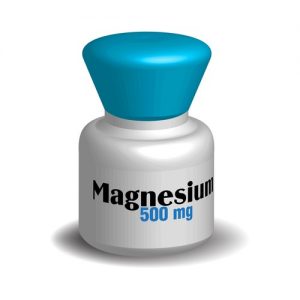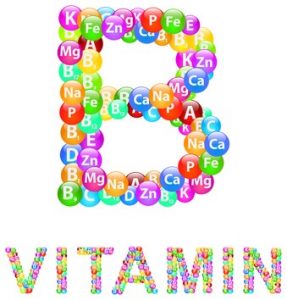The Case For Holistic Supplementation
Author: Dr. Stephen Chaney
Does magnesium optimize vitamin D levels?
 One of the great mysteries about vitamin D is the lack of correlation between vitamin D intake and blood levels of its active metabolite, 25-hydroxyvitamin D. Many people who consume RDA levels of vitamin D from foods and/or supplements end up with low blood levels of 25-hydroxyvitamin D. The reason(s) for this discrepancy between intake of vitamin D and blood levels of its active metabolite are not currently understood.
One of the great mysteries about vitamin D is the lack of correlation between vitamin D intake and blood levels of its active metabolite, 25-hydroxyvitamin D. Many people who consume RDA levels of vitamin D from foods and/or supplements end up with low blood levels of 25-hydroxyvitamin D. The reason(s) for this discrepancy between intake of vitamin D and blood levels of its active metabolite are not currently understood.
Another great mystery is why it has been so difficult to demonstrate benefits of vitamin D supplementation. Association studies show a strong correlation between optimal 25-hydroxyvitamin D levels and reduced risk of heart disease, cancer, and other diseases. However, placebo-controlled clinical trials of vitamin D supplementation have often come up empty. Until recently, many of those studies did not measure 25-hydroxyvitamin D levels. Could it be that optimal levels of 25-hydroxyvitamin D were not achieved?
The authors of the current study hypothesized that optimal magnesium status might be required for vitamin D conversion to its active form. You are probably wondering why magnesium would influence vitamin D metabolism. I had the same question.
The authors pointed out that:
- Magnesium status affects the activities of enzymes involved in both the synthesis and degradation of 25-hydroxyvitamin D.
- Some clinical studies have suggested that magnesium intake interacts with vitamin D intake in affecting health outcomes.
- If the author’s hypothesis is correct, it is a concern because magnesium deficiency is prevalent in this country. In their “Fact Sheet For Health Professionals,” the NIH states that “…a majority of Americans of all ages ingest less magnesium from food than their respective EARs [Estimated Average Requirement]; adult men aged 71 years and older and adolescent females are most likely to have low intakes.” Other sources have indicated that magnesium deficiency may approach 70-80% for adults over 70.
If the author’s hypothesis that magnesium is required for vitamin D activation is correct and most Americans are deficient in magnesium, this raises some troubling questions.
- Most vitamin D supplements do not contain magnesium. If people aren’t getting supplemental magnesium from another source, they may not be optimally utilizing the vitamin D in the supplements.
- Most clinical studies involving vitamin D do not also include magnesium. If most of the study participants are deficient in magnesium, it might explain why it has been so difficult to show benefits from vitamin D supplementation.
Thus the authors devised a study (Q Dai et al, American Journal of Clinical Nutrition, 108: 1249-1258, 2018 ) to directly test their hypothesis.
How Was The Study Designed?
 The authors recruited 180 volunteers, aged 40-85, from an ongoing study on the prevention of colon cancer being conducted at Vanderbilt University. The duration of the study was 12 weeks. Blood was drawn at the beginning of the study to measure baseline 25-hydroxyvitamin D levels. Three additional blood draws to determine 25-hydroxyvitamin D levels were performed at weeks 1, 6, and 12.
The authors recruited 180 volunteers, aged 40-85, from an ongoing study on the prevention of colon cancer being conducted at Vanderbilt University. The duration of the study was 12 weeks. Blood was drawn at the beginning of the study to measure baseline 25-hydroxyvitamin D levels. Three additional blood draws to determine 25-hydroxyvitamin D levels were performed at weeks 1, 6, and 12.
Because high blood calcium levels increase excretion of magnesium, the authors individualized magnesium intake based on “optimizing” the calcium to magnesium ratio in the diet rather than giving everyone the same amount of magnesium. The dietary calcium to magnesium ratio for most Americans is 2.6 to 1 or higher. Based on their previous work, they considered an “ideal” calcium to magnesium ratio to be 2.3 to 1. The mean daily dose of magnesium supplementation in this study was 205 mg, with a range from 77 to 390 mg to achieve the “ideal” calcium to magnesium ratio. The placebo was an identical gel capsule containing microcrystalline cellulose.
Two 24-hour dietary recalls were conducted at baseline to determine baseline dietary intake of calcium and magnesium. Four additional 24-hour dietary recalls were performed during the 12-week study to assure that calcium intake was unchanged and the calcium to magnesium ratio of 2.3 to 1 was achieved.
In short this was a small study, but it was very well designed to test the author’s hypothesis.
Does Magnesium Optimize Vitamin D Levels?
 This was a very complex study, so I am simplifying it for this discussion. For full details, I refer you to the journal article (Q Dai et al, American Journal of Clinical Nutrition, 108: 1249-1258, 2018).
This was a very complex study, so I am simplifying it for this discussion. For full details, I refer you to the journal article (Q Dai et al, American Journal of Clinical Nutrition, 108: 1249-1258, 2018).
The most significant finding was that magnesium supplementation did affect blood levels of 25-hydroxyvitamin D. However, the effect of magnesium supplementation varied depending on the baseline 25-hydroxyvitamin D level at the beginning of the study.
- When the baseline 25-hydroxyvitamin D was 20 ng/ml or less (which the NIH considers inadequate), magnesium supplementation had no effect on 25-hydroxyvitamin D levels.
- When the baseline 25-hydroxyvitamin D was 20-30 ng/ml (which the NIH considers the lower end of the adequate range), magnesium supplementation increased 25-hydroxyvitamin D levels.
- When the baseline 25-hydroxyvitamin D level approached 50 ng/ml (which the NIH says may be “associated with adverse effects”), magnesium supplementation lowered 25-hydroxyvitamin D levels.
The simplest interpretation of these results is:
- When vitamin D intake is inadequate, magnesium cannot magically create 25-hydroxyvitamin D from thin air.
- When vitamin D intake is adequate, magnesium can enhance the conversion of vitamin D to 25-hydroxyvitamin D.
- When vitamin D intake is too high, magnesium can help protect you by lowering 25-hydroxyvitamin D levels.
The authors concluded: “Our findings suggest that optimal magnesium status may be important for optimizing 25-hydroxyvitamin D status. Further dosing studies are warranted…”
What Does This Study Mean For You?
 This was a groundbreaking study that has provided novel and interesting results.
This was a groundbreaking study that has provided novel and interesting results.
- It provides the first evidence that optimal magnesium status may be required for optimizing the conversion of vitamin D to 25-hydroxyvitamin D.
- It suggests that optimal magnesium status can help normalize 25-hydroxyvitamin D levels by increasing low levels and decreasing high levels.
However, this was a small study and, like any groundbreaking study, has significant limitations. For a complete discussion of the limitations and strengths of this study I refer you to the editorial (S Lin and Q Liu, American Journal of Clinical Nutrition, 108: 1159-1161, 2018) that accompanied the study.
In summary, this study needs to be replicated by larger clinical studies with a more diverse study population. In order to provide meaningful results, those studies would need to carefully control and monitor calcium, magnesium, and vitamin D intake. There is also a need for mechanistic studies to better understand how magnesium can both increase low 25-hydroxyvitamin D levels and decrease high 25-hydroxyvitamin D levels.
However, assuming the conclusions of this study to be true, it has some interesting implications:
- If you are taking a vitamin D supplement, you should probably make sure that you are also getting the DV (400 mg) of magnesium from diet plus supplementation.
- If you are taking a calcium supplement, you should check that it also provides a significant amount of magnesium. If not, change supplements or make sure that you get the DV for magnesium elsewhere.
- I am suggesting that you shoot for the DV (400 mg) of magnesium rather than reading every label and calculating the calcium to magnesium ratio. The “ideal” ratio of 2.3 to 1 is hypothetical at this point. A supplement providing the DV of both calcium and magnesium would have a calcium to magnesium ratio of 2.5, and I would not fault any manufacturer for providing you with the DV of both nutrients.
- If you are taking high amounts of calcium, I would recommend a supplement that has a calcium to magnesium ratio of 2.5 or less.
- If you are considering a magnesium supplement to optimize your magnesium status, you should be aware that magnesium can cause gas, bloating, and diarrhea. I would recommend a sustained release magnesium supplement.
- Finally, whole grains and legumes are among your best dietary sources of magnesium. Forget those diets that tell you to eliminate whole food groups. They are likely to leave you magnesium-deficient.
Even if the conclusions of this study are not confirmed by subsequent studies, we need to remember that magnesium is an essential nutrient with many health benefits and that most Americans do not get enough magnesium in their diet. The recommendations I have made for optimizing magnesium status are common-sense recommendations that apply to all of us.
The Case For Holistic Supplementation
 This study is one of many examples showing that a holistic approach to supplementation is superior to a “magic bullet” approach where you take individual nutrients to solve individual problems. For example, in the case of magnesium and vitamin D:
This study is one of many examples showing that a holistic approach to supplementation is superior to a “magic bullet” approach where you take individual nutrients to solve individual problems. For example, in the case of magnesium and vitamin D:
- If you asked most nutrition experts and supplement manufacturers whether it is important to provide magnesium along with vitamin D, their answer would likely be “No”. Even if they are focused on bone health, they would be more likely to recommend calcium along with vitamin D than magnesium along with vitamin D.
- If your doctor has tested your 25-hydroxyvitamin D levels and recommended a vitamin D supplement, chances are they didn’t also recommend that you optimize your magnesium status.
- Clinical studies investigating the benefits of vitamin D supplementation never ask whether magnesium intake is optimal.
That’s because most doctors and nutrition experts still think of nutrients as “magic bullets.” I cover holistic supplementation in detail in my book “Slaying The Supplement Myths.” Other examples that make a case for holistic supplementation that I cover in my book include:
- A study showing that omega-3 fatty acids and B vitamins may work together to prevent cognitive decline. Unfortunately, most studies looking at the effect of B vitamins on cognitive decline have not considered omega-3 status and vice versa. No wonder those studies have produced inconsistent results.
- Studies looking at the effect of calcium supplementation on loss of bone density in the elderly have often failed to include vitamin D, magnesium, and other nutrients that are needed for building healthy bone. They have also failed to include exercise, which is essential for building healthy bone. No wonder some of those studies have failed to find an effect of calcium supplementation on bone density.
- A study reported that selenium and vitamin E by themselves might increase prostate cancer risk. Those were the headlines you might have seen. The same study showed Vitamin E and selenium together did not increase prostate cancer risk. Somehow that part of the study was never mentioned.
- A study reported that high levels of individual B vitamins increased mortality slightly. Those were the headlines you might have seen. The same study showed that when the same B vitamins were combined in a B complex supplement, mortality decreased. Somehow that observation never made the headlines.
- A 20-year study reported that a holistic approach to supplementation produced significantly better health outcomes.
In summary, vitamins and minerals interact with each other to produce health benefits in our bodies. Some of those interactions we know about. Others we are still learning about. When we take high doses of individual vitamins and minerals, we create potential problems.
- We may not get the full benefit of the vitamin or mineral we are taking because some other important nutrient(s) may be missing from our diet.
- Even worse, high doses of one vitamin or mineral may interfere with the absorption or enhance the excretion of another vitamin or mineral. That can create deficiencies.
The same principles apply to our diet. I mentioned earlier that whole grains and legumes are among the best dietary sources of magnesium. Eliminating those two foods from the diet increases our risk of becoming magnesium deficient. And, that’s just the tip of the iceberg. Any time you eliminate foods or food groups from the diet, you run the risk of creating deficiencies of nutrients, phytonutrients, specific types of fiber, and the healthy gut bacteria that use that fiber as their preferred food source.
The Bottom Line
A recent study suggests that optimal magnesium status may be important for optimizing 25-hydroxyvitamin D status. This is one of many examples showing that a holistic approach to supplementation is superior to a “magic bullet” approach where you take individual nutrients to solve individual problems. For example, in the case of magnesium and vitamin D:
- If you asked most nutrition experts and supplement manufacturers whether it is important to provide magnesium along with vitamin D, their answer would likely be “No.” Even if they are focused on bone health, they would be more likely to recommend calcium along with vitamin D than magnesium along with vitamin D.
- If your doctor has tested your 25-hydroxyvitamin D levels and recommended a vitamin D supplement, chances are he or she did not also recommend that you optimize your magnesium status.
- Clinical studies investigating the benefits of vitamin D supplementation never ask whether magnesium intake is optimal. That may be why so many of those studies have failed to find any benefit of vitamin D supplementation.
I cover holistic supplementation in detail in my book “Slaying The Supplement Myths” and provide several other examples where a holistic approach to supplementation is superior to taking individual supplements.
In summary, vitamins and minerals interact with each other to produce health benefits in our bodies. Some of those interactions we know about. Others we are still learning about. Whenever we take high doses of individual vitamins and minerals, we create potential problems.
- We may not get the full benefit of the vitamin or mineral we are taking because some other important nutrient(s) may be missing from our diet.
- Even worse, high doses of one vitamin or mineral may interfere with the absorption or enhance the excretion of another vitamin or mineral. That can create deficiencies.
The same principles apply to what we eat. For example, whole grains and legumes are among the best dietary sources of magnesium. Eliminating those two foods from the diet increases our risk of becoming magnesium deficient. And, that’s just the tip of the iceberg. Any time you eliminate foods or food groups from the diet, you run the risk of creating deficiencies.
For more details about the current study and what it means to you read the article above.
These statements have not been evaluated by the Food and Drug Administration. This information is not intended to diagnose, treat, cure or prevent any disease.
